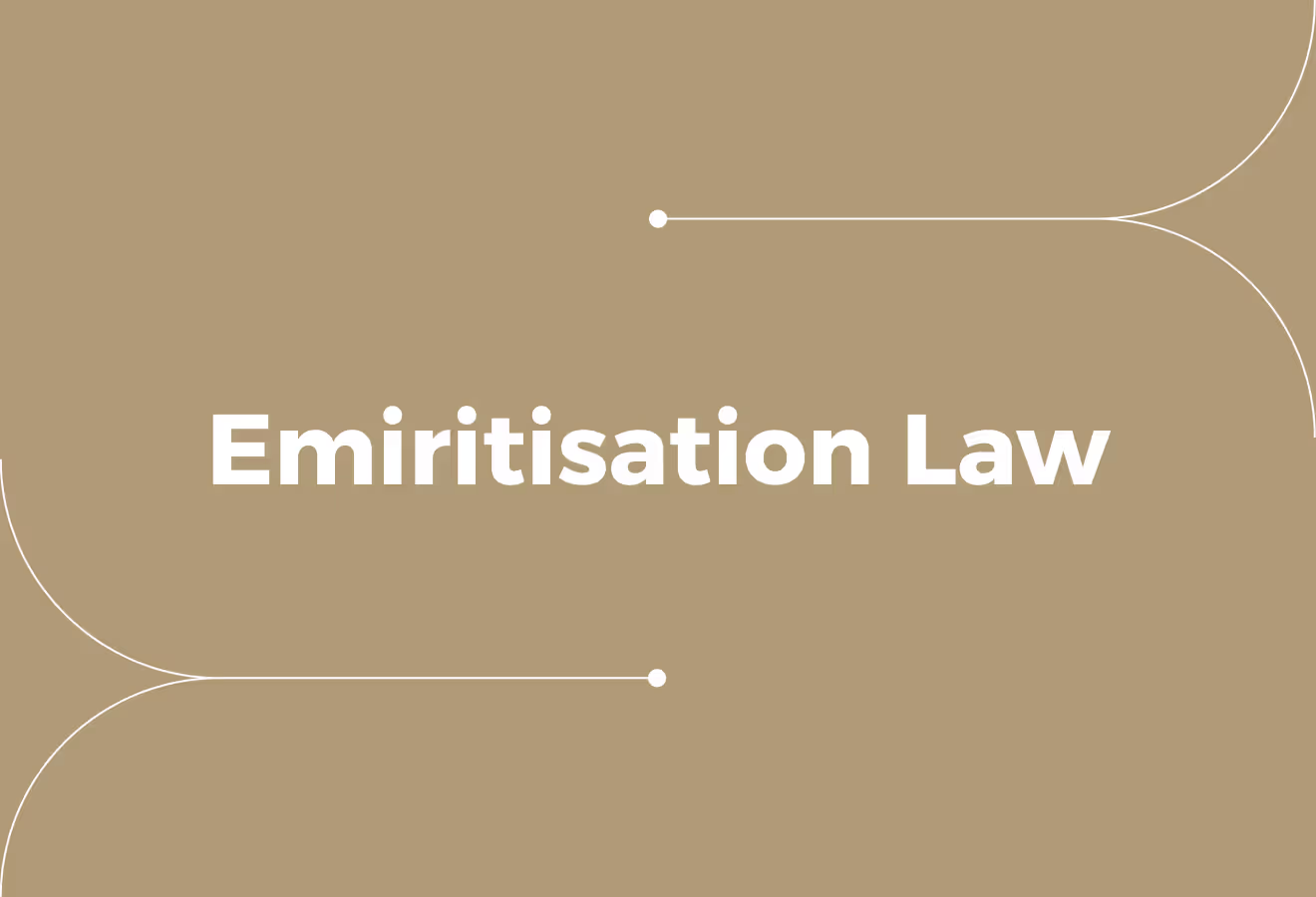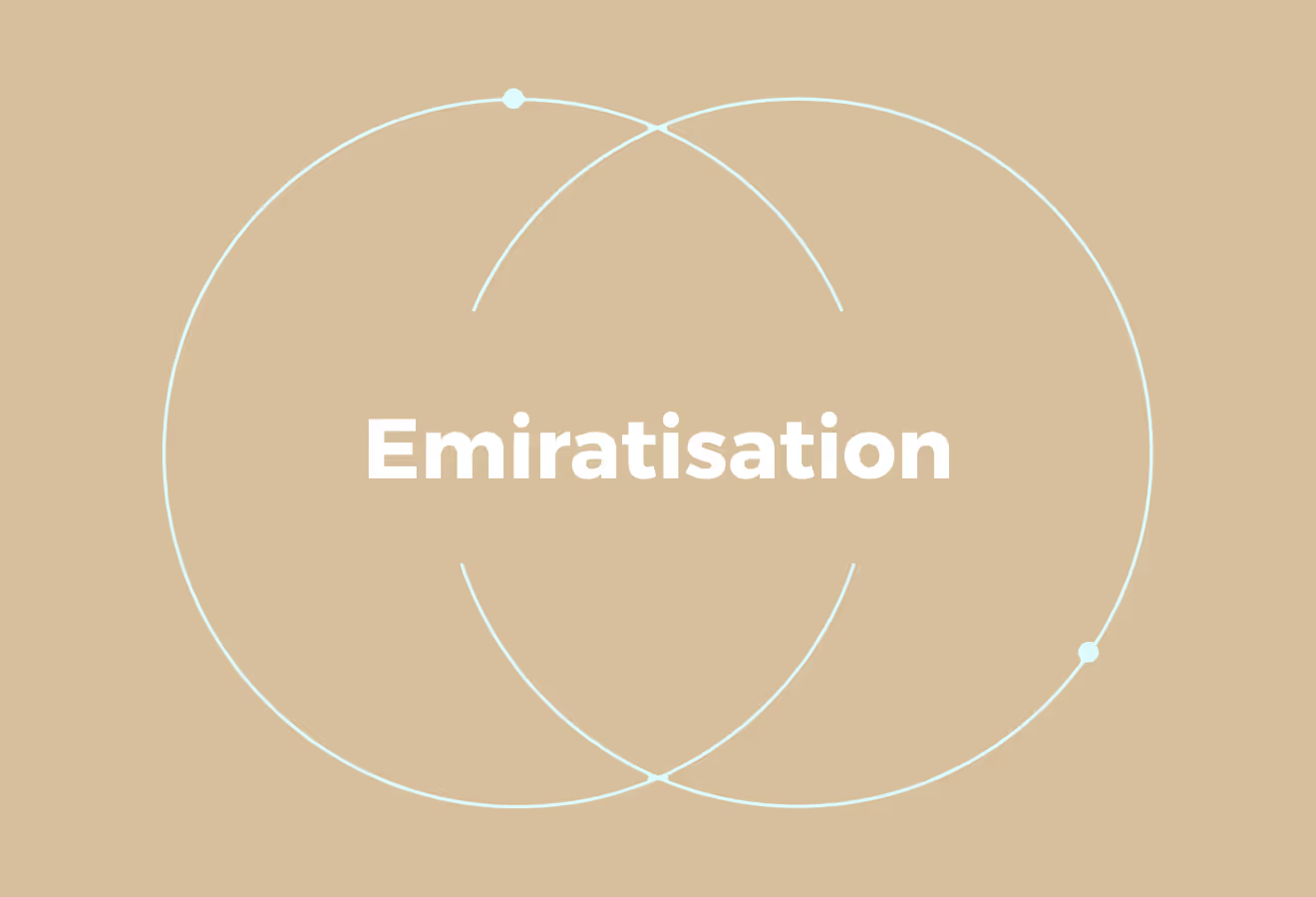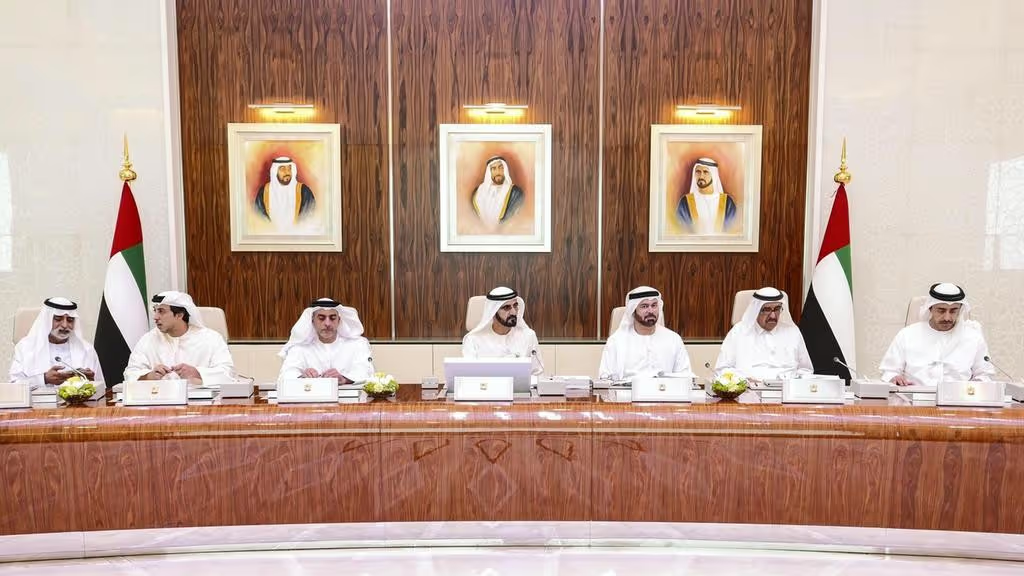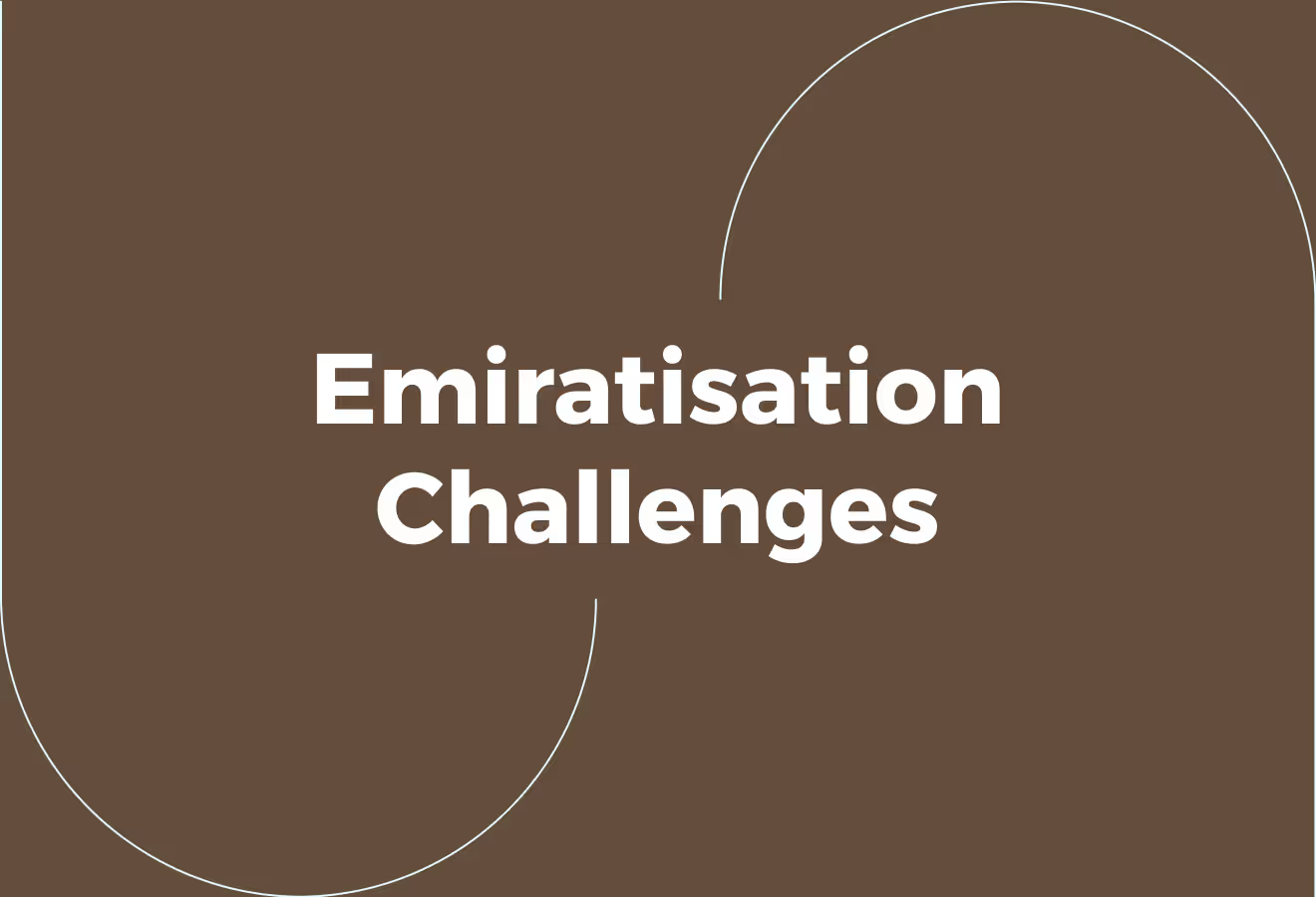A Comprehensive Guide On Emiratisation Policy in the UAE for Businesses

Imagine running a successful business in the UAE and then learning about the requirements for hiring Emirati nationals under the Emiratisation Policy. This scenario is common. Emiratisation, first introduced in the 1990s and formally launched in 2000, has gained renewed momentum since 2020 as the UAE enforces stricter targets for hiring Emirati nationals in the private sector.
This article outlines the key aspects of Emiratisation Policy in the UAE for businesses, including how to calculate recruitment targets for Emirati nationals and the penalties for non-compliance. The regulations regarding Emiratisation Policy are subject to change, so it is advisable to stay informed to ensure compliance with local requirements as they evolve.
The UAE Salary Guide can assist with this. This resource provides current information on Emirati salaries, helping businesses create competitive packages to attract local talent. Cercli's global HR system further supports this by offering automated compliance tracking and real-time reporting, ensuring businesses can confidently meet Emiratisation targets and adapt to regulatory updates.
What Is Emiratisation?

Emiratisation is a government initiative aimed at increasing the number of Emirati citizens employed in the private and public sectors. While public sector roles have traditionally offered attractive working hours and benefits, the government actively encourages Emirati nationals to pursue careers in a broader range of industries, particularly within private enterprises.
The aim is to create a more balanced and skilled workforce by integrating Emirati nationals into sectors that have historically relied heavily on expatriate labour. This not only supports long-term national development but also ensures that Emirati nationals are well represented across key economic sectors.
How Does Emiratisation Work
In September 2022, authorities introduced specific hiring targets for private sector employers. Initially, companies with 50 or more employees were required to ensure that at least 3% of their workforce comprised Emirati nationals by July 2023. That figure is set to increase incrementally, with targets of 6% by the end of 2024, 8% in 2025, and 10% in 2026.
Understanding SME Emiratisation Quotas
From July 2024, the regulations were expanded to include smaller companies with 20 to 49 employees across 14 key sectors, such as:
- Education
- Construction
- Real estate
- Healthcare
These businesses are also now required to gradually meet Emiratisation targets, with an expected increase of 1% every six months. The focus is on skilled positions, and companies located in free zones are currently exempt, although they are encouraged to participate voluntarily.
Government Support for Emiratisation
To assist both employers and job seekers in navigating this transition, the Emirati Human Resources Competitiveness Council, known as Nafis, plays a pivotal role. Nafis supports the recruitment and development of Emirati talent in the private sector through various national initiatives.
These include training programmes, salary support, and job matching services, designed to equip Emirati nationals with the skills necessary for long-term success in the private sector. The council aims to integrate 75,000 Emirati nationals into the private workforce within five years, ensuring that both employers and employees benefit from a stronger, more locally rooted labour market.
Key Rules and Quotas Under Emiratisation Policy

The Emiratisation programme aims to increase the number of UAE nationals in the workforce across both the public and private sectors. The government has set quotas for firms to meet, which grow progressively over time. For larger companies, the requirements are as follows: Private sector companies with 50 or more employees must increase their proportion of Emirati staff in skilled roles by 2% annually, aiming for a total of 10% by 2026.
Large Companies (50+ Employees)
These requirements apply to private sector companies with 50 or more employees and are monitored by the Ministry of Human Resources and Emiratisation (MoHRE). To encourage compliance, the Cabinet has approved a monthly financial contribution of AED 6,000 for each Emirati national who is not employed by companies that have fallen short of their targets. This amount is set to increase by AED 1,000 annually until 2026. These payments are processed through MoHRE’s digital systems.
Small and Medium Enterprises (SMEs, 20–49 Employees)
For smaller businesses, different rules apply. Instead of monthly penalties, companies that fail to meet Emiratisation requirements are subject to fixed lump-sum fines: AED 96,000 in 2024 and AED 108,000 in 2025. These penalties are also enforced by MoHRE but are not tied to monthly shortfalls.
New Rules Under Emiratisation Policy for Small Companies
From 2024, the Emiratisation programme expanded to include companies with 20 to 49 employees. These businesses must hire at least one UAE national in 2024, and at least two nationals by 2025.
This requirement applies to companies operating in 14 specified sectors, including:
- Information and communications
- Financial and insurance activities
- Real estate
- Scientific
- Professional and technical services
- Administrative and support services
- Education
- Healthcare and social work
- Arts and entertainment
- Mining and quarrying
- Manufacturing
- Construction
- Wholesale and retail trade
- Transport and warehousing
- Hospitality
Companies in this category that fail to meet the hiring target in 2024 will be required to contribute AED 96,000, which rises to AED 108,000 in 2025 for continued non-compliance.
Ongoing Monitoring and Support Under Emiratisation Policy
MoHRE collaborates closely with the Cabinet Secretariat to track progress and ensure compliance through regular reporting and labour market monitoring. Simultaneously, businesses that demonstrate high-quality efforts in training and employing Emirati nationals may be eligible for incentives, though these are assessed based on qualitative performance.
The broader aim is not only to meet quotas but also to ensure Emirati nationals are meaningfully integrated into the workforce in roles that align with their skills and aspirations.
Related Reading
Benefits and Opportunities of Emiratisation for Businesses

Support for Employers
Emiratisation, also known as the Emiratisation Policy, focuses on the recruitment and training of Emirati nationals to increase their presence in the private sector. The Emiratisation Policy can benefit businesses financially, enhance their corporate reputation, and help them build a stable workforce.
Government Support and Incentives
A key Emiratisation benefit for employers is the range of government incentives offered to companies that meet their Emiratisation quotas.
These include:
- Wage subsidies
- Grants for employee training
An example is the Nafis Award. The Nafis Award is given to private sector establishments that excel in recruiting UAE nationals. Such awards make recruiting local talent an attractive option for businesses.
Improved Access to Government Contracts
Companies meeting Emiratisation quotas gain a competitive advantage in securing government contracts. Public sector tenders often prioritise firms that have achieved their Emiratisation targets.
This provides compliant companies with access to more significant business opportunities and partnerships, enhancing their long-term prospects in the UAE market.
Enhanced Corporate Reputation
Committing to Emiratisation enhances a company’s image and reflects positively on its corporate social responsibility. Firms that actively recruit and train Emirati talent are seen as supporting national objectives, which strengthens their public image and helps attract investors, customers, and top talent.
A company that contributes to local employment stands to gain widespread recognition and loyalty from both the market and its employees.
Workforce Stability and Retention
Recruiting Emirati nationals typically leads to higher retention rates compared to expatriate employees. Emirati nationals tend to remain with their employers for longer periods, reducing the need for frequent recruitment and training.
This long-term stability fosters a cohesive workforce and reduces the associated costs of high turnover.
Related Reading
Penalties for Non-Compliance

Financial Contributions for Non-Compliance
Under current Emiratisation regulations, private sector establishments that do not meet the mandated Emiratisation targets are subject to specific financial contributions and administrative penalties. These measures ensure equitable participation across the private sector and support the broader objectives of Emirati workforce development.
Starting from January 2023, companies that fail to meet the required Emiratisation rates, as set out in Cabinet Resolution No. (19/5m) As of 2022, Emirati nationals not employed by the targets must pay a monthly contribution of AED 6,000. This amount increases by AED 1,000 annually, aligning with the phased increase in Emiratisation quotas up to 2026.
Restoring Compliance: Timelines and Contributions
If an establishment fails to maintain its Emirati national employment levels by the following year, it will still be considered non-compliant. Companies are afforded a two-month window to restore compliance.
If they achieve this within this period, they are exempt from the contribution. If the requirement remains unmet after two months, the full annual contribution becomes payable, calculated based on the shortfall in required hires and due in a single lump sum at the start of the following year.
Escalating Administrative Measures
If an establishment fails to pay the assessed contributions, the Ministry of Human Resources and Emiratisation (MoHRE) initiates a series of enforcement actions. On the due date, the company is placed under electronic monitoring to ascertain the payment status.
The day after the due date, MoHRE may suspend the issuance and renewal of work permits, informing the employer of the reason for the suspension.
Escalation of Non-Compliance Measures
On the third, tenth, and seventeenth day after the due date, MoHRE will issue reminders and notices to the non-compliant company to encourage resolution. Two months after the due date, if the issue remains unresolved, MoHRE may extend the suspension to cover all sole establishments or businesses under the same ownership.
This accounts for the standard ownership structure across related businesses.
Reclassification and Fines
If a company fails to meet the Emiratisation quota for two consecutive years, it will be reclassified into Category 3, the lowest tier under MoHRE’s business classification system. This reclassification can affect access to certain government services and employment privileges.
In cases where a company is found to have committed fraud or submitted false documents or information related to Emiratisation, it will be subject to fines by Cabinet Resolution No. 21 of 2020 and its subsequent amendments.
Comprehensive Workforce Management for MENA Businesses
Cercli is designed for companies in the Middle East that need a flexible, compliant, and reliable way to manage their workforce, whether teams are local, remote, or across multiple countries. Built for the realities of doing business in the region, Cercli helps companies in the UAE, Saudi Arabia, and across MENA simplify HR operations, stay compliant with local regulations, and run payroll with confidence.
From managing WPS (Wage Protection System) registrations in the UAE, processing GOSI in Saudi Arabia, handling DEWS contributions, and ensuring contracts and benefits are compliant, Cercli simplifies regional payroll and HR. As companies hire remote employees, contractors, and global teams, Cercli provides comprehensive support for global workforce management.
Unified Data for Comprehensive HR
Companies can pay contractors or full-time employees in over 150 countries through multicurrency payroll, Employer of Record (EOR) services, and compliant international contracts, all through a single platform.
Cercli gives HR teams a centralised system to manage every part of the employee lifecycle:
- Onboarding, asset management
- Leave tracking
- Time off calendars
- Payroll processing
- Offboarding
With one source of truth for all employee data, companies can eliminate manual processes, reduce payroll errors, and ensure complete visibility across the entire organisation.
Emiratisation Challenges for Businesses

The Shift from Expatriate Reliance to Emiratisation Compliance
Many businesses in the UAE have historically relied on a predominantly expatriate workforce. Sector-specific labour requirements and international talent pipelines have often driven this model. With the introduction of structured Emiratisation targets, companies are now encouraged to diversify their recruitment practices to include a greater number of UAE nationals, particularly in skilled roles.
Successfully overcoming this challenge begins with recognising the value Emirati nationals can bring to a business and creating opportunities for them in meaningful positions. This may involve reviewing role structures, adapting career development pathways, and ensuring that positions traditionally filled by expatriates are accessible to nationals through appropriate support and training.
Integrating Emirati Talent into Core Business Functions
One of the more immediate challenges is the integration of Emirati employees into positions not previously held by nationals. This transition requires a thoughtful approach to:
- Onboarding
- Mentoring
- Development
Companies that invest in structured training, internal knowledge sharing, and clear growth opportunities are more likely to retain Emirati talent.
While some roles may require adjustments in communication or workflow practices, employers who involve Emirati team members early in decision-making and project work often find the integration smoother and more sustainable.
Aligning Business Strategies with Quotas
With Emiratisation quotas increasing annually, companies must adapt their workforce planning processes. This involves not only meeting the minimum thresholds but also anticipating how future quotas may affect recruitment and resourcing requirements.
A strategic approach might include conducting workforce audits, developing internal pipelines of national talent, and identifying functions within the business where Emirati employment can grow naturally. Importantly, this should not be approached merely as a compliance task, but as a long-term shift in human capital strategy.
Related Reading
Book a Demo to Speak with Our Team about Our Global HR System
Cercli is designed for companies in the Middle East to manage their workforce, whether local or located across more than 150 countries, through a single platform. Manage payroll compliantly across the UAE, Saudi Arabia, and the wider MENA region, handle leave, onboard employees, track assets, and process global contractor payments in multiple currencies efficiently.
Whether managing 25 employees or scaling to over 500 across multiple markets, Cercli combines local knowledge with international reach, providing your HR team with a compliant system to manage operations and pay your workforce globally. Book a demonstration to see how Cercli helps MENA companies simplify HR, payroll, and global team management, ensuring continuous compliance.










